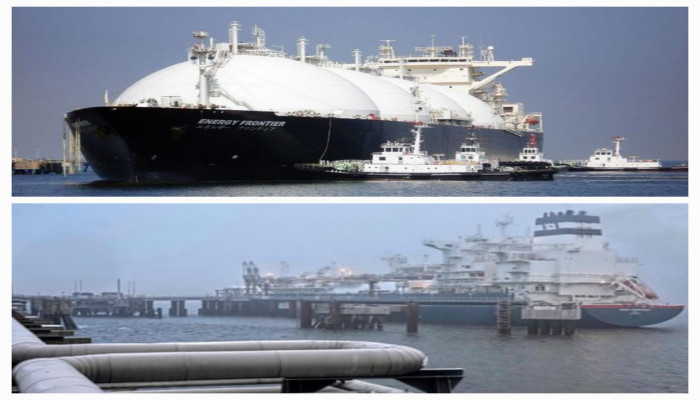European LNG imports from Russia reach record levels
- In Reports
- 08:52 PM, Jan 09, 2025
- Myind Staff
According to data collection, Europe purchased a record quantity of liquefied natural gas from Russia this past year, despite EU attempts to reduce reliance on fossil resources that pay Putin's war chest.
Ships delivering 17.8 million tonnes of ultra-cold Russian gas landed at European ports in the year 2024, more than 2 million tonnes from the previous year, based on experts from Rystad Energy. According to Jan-Eric Fähnrich, a gas analyst at Rystad Energy, LNG flows are increasing and reaching "record highs." Since the commencement of the Ukraine war, Europe has reduced its massive imports of piped Russian gas while boosting LNG purchases from various nations, including Russia. Last year, it surpassed Qatar as Europe's second-largest LNG provider, behind the United States.
As reported by Fähnrich, Europe imported 49.5 billion cubic meters (bcm) of Russian gas via pipelines in 2024, with an additional 24.2 billion cubic meters arriving in cold liquid form via ship. He said some of the LNG will have been sold to other nations.
The statistics were released days after Ukraine halted Russian gas shipments through its pipelines, thus severing a Soviet-era energy lifeline that had withstood three years of full-fledged conflict between the neighbours.
The Centre for Research on Energy and Clean Air (Crea), whose data analysis differs somewhat from Rystad's, said that Europe's imports of Russian LNG were €7.32 billion in 2024. It discovered a 14% year-on-year increase in tonnage, raising imports to 17.5 million tonnes.
"The reason for the rise is fairly simple," explained Vaibhav Raghunandan, Crea's Russia expert. "Russian LNG is given at a discount to other suppliers. With no commodity restrictions, corporations act in their self-interest by purchasing greater amounts of petrol from the lowest source."
The EU intends to stop purchasing Russian fossil fuels by 2027, but it has been hesitant to restrict petrol, as it did with coal and oil. In June, member states decided to curtail the "transhipment" of Russian LNG to non-EU nations beginning in March 2025.
According to Fähnrich, the recent increase in Russian LNG imports might be attributed to efforts to transport supplies before the sanctions were implemented. Ukrainian activists claim that the system of sanctions is undercut by "glaring loopholes" that allow Russia to continue funding its war machine with fossil resource earnings.
"The record levels of Russian LNG imports in 2024 are a stark reminder that the EU must act decisively to close the remaining loopholes in its sanctions regime," remarked Svitlana Romanko, founder of Razom We Stand, a Ukrainian climate action organisation. "We are up to 15 sanctions packages now, and a full ban on Russian LNG imports is urgently needed to stop funding Putin's war chest."
Tighter sanctions may reduce greenhouse gas emissions from Russia's oil and gas industry by 25% by 2030, according to a paper published last month by Romanko and her colleagues. The analysis showed that replacing polluting fuels with renewables may reduce end-use emissions by 300 million tonnes annually. "The EU has a choice," explained Romanko. "Continue financing war and pollution, or commit to a clean, secure, and peaceful energy future."







Comments